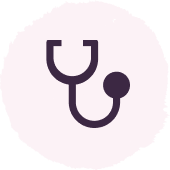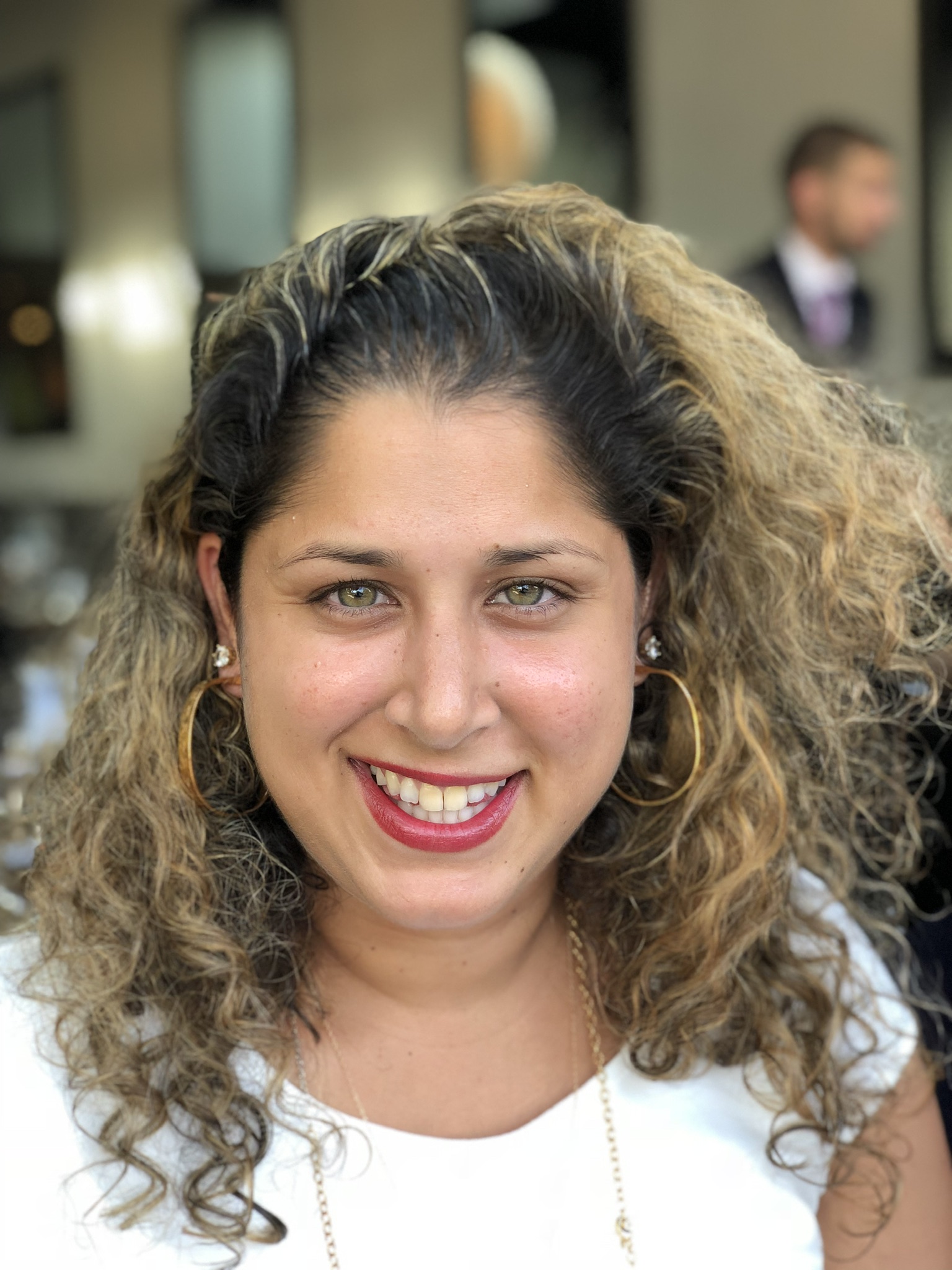


Frequently Asked Questions
Get straightforward answers to the questions we hear most often — and if you don’t find what you’re looking for, we’re here to help you personally.


If you don’t find your question here — or if you’d like a more personalized explanation — please call or text us anytime.
We’re here to listen, clarify, support, and guide you with warmth, honesty, and expertise.


FAQ
These are the most commonly asked fertility-related questions.
Do medications used in the IVF treatment have any side effects?
Most patients should expect minimal or no side effects. You should be able to continue with your everyday activities during your treatment.
How long does a full treatment cycle take?
For a standard IVF cycle, expect approximately 4 to 6 weeks from the start of ovarian priming through egg retrieval and embryo transfer.
Is the egg retrieval procedure painful?
No. We use strong sedation and relaxation medications—most patients sleep through the 5–10 minute retrieval. Some may have light cramping afterward.
What kind of testing is required for Advanced Reproductive Treatments?
1. Semen evaluation
2. Ovarian reserve testing
3. Evaluation of the Uterus
4. Testing Required by the State of California and the FDA
What is ICSI, and does it affect my embryos?
ICSI (Intracytoplasmic Sperm Injection) is a technique where a single sperm is directly injected into an egg. It’s been widely used since the 1990s; millions of healthy babies have resulted without a significant difference in outcomes.
I’m over 40—should I plan on doing pre-implantation genetic testing (PGT)?
You may consider adding PGT, especially if age or other factors increase the risk of chromosomal abnormalities. PGT doesn’t guarantee success, but it can reduce miscarriage risk and give added clarity.
How many embryos should we transfer?
In line with the American Society for Reproductive Medicine (ASRM) guidelines, we recommend transferring 1 or 2 embryos. You’ll always have final say based on your goals and circumstances.
Does bed rest after embryo transfer help?
We do not recommend extended bed rest. Studies show early movement after the transfer may improve the implantation success—immediately resuming your daily activities is fine.
I’m part of the LGBTQ+ community. Can I receive treatment at Bay IVF?
Absolutely. We’re proud to be one of the first Northern California clinics to provide inclusive fertility services for lesbian partners. You are welcome and supported here!
How long should I wait before seeking help if we’re not getting pregnant?
You mustn’t wait too long before seeing an infertility specialist. Timing depends on age. At Bay IVF, we use the following guidelines:
35 or younger 12 months
36 – 37 9 months
38 – 39 6 months
40 – 41 3 months
42 and older immediately
How can I increase my chances of pregnancy?
Your state of reproductive health can play an important role when trying to conceive. Please review the IVF Diet and Lifestyle (PDF) document and follow the recommendations as closely as possible.
Should I go straight to IVF or consider other treatments first?
The decision of which treatment is the most appropriate for you is based on your past reproductive history, the results of your fertility testing, and the outcome of any previous reproductive treatments you may have had. You may need In Vitro Fertilization treatment if any of the following apply to you:
1. History of tubal blockage and pelvic adhesions
2. Male Factor Infertility
3. Infertility associated with endometriosis
4. Infertility associated with Polycystic Ovary Syndrome (PCO)
5. Unexplained infertility
6. Long-standing infertility: no contraception for more than a year and a half
7. Decreasing “ovarian reserve”: IVF may be the most appropriate treatment for women over the age of 37.
8. You did not become pregnant with intrauterine insemination (IUI) cycles.
9. You did not become pregnant with ovarian stimulation cycles with oral or injectable medications.
Is the Sonohysterogram required?
Sonohysterogram (saline ultrasound, water ultrasound) is an essential part of the treatment prerequisites. It evaluates the health of the endometrial cavity.
A sonohysterogram is a quick, mostly painless procedure at Bay IVF. A thin, soft catheter is passed through the cervix into the uterus, and a small amount of sterile saline solution is gently instilled. A transvaginal ultrasound is used to confirm the absence of polyps, scarring, or fibroids inside the uterus.
Until what age should I consider IVF?
The probability of a successful IVF treatment declines sharply after age 43. Patients who are 44 and older should strongly consider Donor Egg IVF as the most effective treatment to achieve a successful pregnancy.
Do I have to be legally married to have treatment at Bay IVF?
You do not. At Bay IVF, we do not discriminate based on marital and family status, gender identity, gender expression, sexual orientation, or genetic characteristics.
We have already had IVF treatment at another clinic. Is there any hope that we will be successful with you?
Although the IVF procedure has by now become almost standardized, there are still subtle differences among IVF centers. Such slight differences may play a significant role for some patients.
I am overweight; could this be a problem for the IVF procedure?
Unfortunately, yes. Increased maternal weight can have a profound negative effect on the IVF procedure and its outcome:
1. More medication is needed to stimulate the ovaries
2. Lower egg quality
3. The safety of the egg retrieval procedure
4. Decreased uterine receptivity
5. Increased risk of the baby’s heart defects
At Bay IVF, we recommend that patients adhere to our reproductive health guidelines (PDF). They can optimize health, may improve the quality of eggs and sperm, and result in gradual weight loss, leading to one’s ideal BMI.
How long does it take to complete Frozen Embryo Transfer Treatment?
The Frozen Embryo Transfer (FET) procedure is much shorter than an In Vitro Fertilization cycle. It usually takes only 2-3 weeks to complete a FET cycle, and only 2 clinic visits are needed.
How long can you store frozen eggs and embryos?
There is no time limit on storing cryopreserved eggs or embryos. They are stored in liquid nitrogen at close to absolute zero degrees temperature and do not age.
Your uterus does not “grow old.” Theoretically, there is no age limit for the recipient mother of frozen-thawed eggs or embryos.
Do I need to take breaks between treatment cycles?
Treatments that require ovarian stimulation (IVF, Embryo Banking, etc) require a minimum of one resting cycle before another cycle of treatment can begin. Other treatments (e.g., Frozen Embryo Transfer) do not require a resting cycle.
How many cycles of treatment should I plan for?
The number of treatment cycles you should plan for is ultimately a personal choice, but we will help you with your decision.
The lower the probability of a successful outcome per treatment cycle, the more treatment cycles you should plan for. Most patients can increase their cumulative pregnancy probability by having more than one cycle of treatment.
Do you offer financing for fertility treatments?
Yes. We’ve partnered with Future Family to offer low-interest and even 0% APR options to make fertility care more accessible. Pre-qualifying is easy and does not affect your credit score.
What is Ovarian Hyperstimulation Syndrome (OHSS)?
OHSS is a potential risk in cycles with ovarian stimulation. Symptoms can range from mild (abdominal discomfort, bloating) to more pronounced. We carefully monitor and choose stimulation protocols to minimize risk.
What happens if I have extra embryos that are not used right away?
Extra embryos can be safely vitrified and stored. Survival rates after freezing/thawing are excellent, and implantation rates of thawed embryos are no different from “fresh” embryo transfers.
Are babies conceived via IVF at higher risk of birth defects?
Extensive studies have found no meaningful increase in birth defects for children conceived via IVF or donor-egg IVF compared to naturally conceived children. These are healthy babies, with all the joy and challenges of parenthood. They will kick, spit up, scream, and keep you up all night just like any other baby.
What is unexplained (idiopathic) infertility?
“Unexplained” means we couldn’t find a clear cause after standard testing—this affects up to 25% of infertility cases. IVF is often the most appropriate next step in these scenarios.
Can endometriosis affect fertility?
Yes—especially when moderate to severe. Endometriosis may cause scarring, adhesions, or ovarian/tubal involvement. We evaluate it carefully in your treatment plan.
What is PCOS?
It is estimated that perhaps 5% to 15% of all women are born with some degree of polycystic ovary syndrome (PCOS). Most of these women will never know since they will be able to conceive. These women have a mild degree of PCOS.
Women with more severe PCOS will, at least temporarily, lose the regularity of their menstruation (become anovulatory). This lack of ovulation is accompanied by a hormonal imbalance, which, in some women, involves abnormal insulin production and glucose metabolism.
How do you test egg quality?
While direct measurement of egg quality isn’t possible, we evaluate ovarian reserve using ultrasound (antral follicle count) and hormone levels such as AMH and FSH. These tests help us estimate your chances and tailor the treatment protocol.
What is premature ovarian failure, and can it be overcome?
“Premature ovarian failure refers to a loss of normal function of the ovaries before age 40. The ovaries can no longer produce normal-quality eggs or the female hormones estrogen and progesterone.
There is no known cure for premature ovarian failure, and most patients will need Donor Egg IVF treatment to conceive successfully.”
Does uterine receptivity affect pregnancy?
Uterine lining receptivity does not have a profound effect on the success of infertility treatments. There is evidence suggesting that the role of uterine lining receptivity as a decisive factor in human conception is limited.
What is Assisted Hatching, and what effect does it have on embryos?
Assisted embryo hatching is a laboratory procedure that creates a “weak spot” in the eggshell of an embryo. For frozen embryos, this increases the likelihood that the embryo will hatch, implant, and result in a baby.
Is Carrier Genetic Screening recommended?
All future parents should consider genetic screening for the 100 most common genetic diseases. Please let us know at your initial appointment at Bay IVF if you wish to have your blood sample sent for genetic screening.
Typically, carriers are healthy individuals, but when two parents are carriers of the same genetic disease, they can have a child affected with it. Unfortunately, most people do not know they are carriers until they have a child born with the disease.
Does acupuncture help with fertility?
Two recent studies found an increase in the conception rate among women undergoing acupuncture. A third study found no statistically significant improvement. Acupuncture is safe for women undergoing advanced reproductive treatments.
Can I take over-the-counter medications for a cold?
You can take Tylenol, Sudafed (regular), and Robitussin DM. Please contact our office if you need to take any other medications.
Can I take the flu vaccination during my treatment?
Yes, you can take the flu vaccine in the injectable form.
Can I eat sushi while trying to conceive?
Once pregnancy is achieved, we recommend that you do not eat uncooked fish (e.g., sushi) or undercooked shellfish, eggs, or meat.
Can I dye my hair during my treatment?
Once your embryos have been transferred, we recommend that you do not dye your hair through the first trimester.
May I soak in a hot tub or use a sauna?
Once your ovarian stimulation starts, we recommend that you do not soak in a hot tub or use a sauna, due to the possible detrimental effect of high temperature.
Should I take time off work during IVF treatment?
You could, but it is not required. Most patients will be able to continue their daily lives during treatment.
You may want to take the afternoon off on your egg retrieval day, and that should be all the time off you need.
Will my insurance cover the treatment?
Insurance plans vary widely. To determine if you have coverage for infertility treatments, we can call your insurance provider to confirm what benefits are available. You may also consider getting a loan for your fertility treatment.
Do I need an OB/GYN before starting IVF treatment?
Yes, you do. You may need to call on your OB/GYN for procedures related to your IVF treatment that are not part of your IVF treatment. An example might be endometrial polyp removal if polyps are found during your IVF prerequisites. You will also be referred to your obstetrician for your OB care once your IVF treatment has been successful.



Call or text us with any additional questions.
You are welcome and supported here.
Meet Your Doctor

- Dr. Polansky received his medical diploma from Charles University in Prague, the Czech Republic, in 1978.
- After completing his OB/GYN residency at Jewish Hospital in Saint Louis, MO, he graduated from the Reproductive Endocrinology and Infertility (REI) fellowship at Stanford University in 1985.
- In the same year, he co-founded the Stanford IVF Clinic.
- Dr. Polansky obtained board certification in Obstetrics and Gynecology in 1986 and became REI subspecialty board certified in 1988.
- In 1987, he left Stanford University and established Nova IVF.
- In 2011, he founded Bay IVF, where he provides advanced fertility treatments with a holistic approach, utilizing state-of-the-art techniques.
- Dr. Polansky personally performs ultrasound examinations, egg retrievals, embryo transfers, and ovarian and endometrial stimulations for his patients.
- He is deeply committed to his patients and is always ready to lend a helping hand.
Frank Polansky, M.D.



Initial Appointment Questions
When you call to schedule your consultation, one of our Front Office Coordinators will ask you a short series of simple questions regarding your reproductive history. You will also have an opportunity to ask any financial questions.
Your Initial Visit at Bay IVF
A new patient appointment at a fertility clinic can be stressful. Our goal is to make your initial visit as friendly and relaxing as possible. We encourage you to ask questions at every step of the process to make you feel comfortable and informed.

When You Arrive
You will be welcomed by one of the clinic’s receptionists. One of our nurses will measure your height and weight and take your blood pressure.

Meet Your Doctor
Dr. Polansky will ask you a series of clarifying questions and then provide you with a summary of the factors contributing to your infertility.

Ask Your Questions
You will then have a discussion with him about the most suitable reproductive treatment(s) for you. During this time, you will have the opportunity to ask any questions you may have.

Exam Room
One of the nurses will escort you to an examination room. Your examination will begin with listening to your lungs and heart.

Ultrasound of the Ovaries
The next step is a pelvic ultrasound to examine the uterus and ovaries. This ultrasound will help determine the number of antral follicles present within the ovaries.

Financial Part
After that, you will discuss the financial aspects of your treatment with one of the financial advisors, including potential financing options.

Support 24/7
If you have any questions after leaving the clinic, please feel free to reach out to us by phone, text, or email. Open and discreet communication is an integral part of the care we provide at Bay IVF.

What About Time?
Your entire visit is expected to last approximately one hour.


Schedule Your Initial Consultation With Dr. Polansky
Online (no cost) or In-Person
Call or Text Us: Call or text us at 📞 650 322 0500
You can also complete the form below to request your initial consultation.


Let’s talk about your next step







